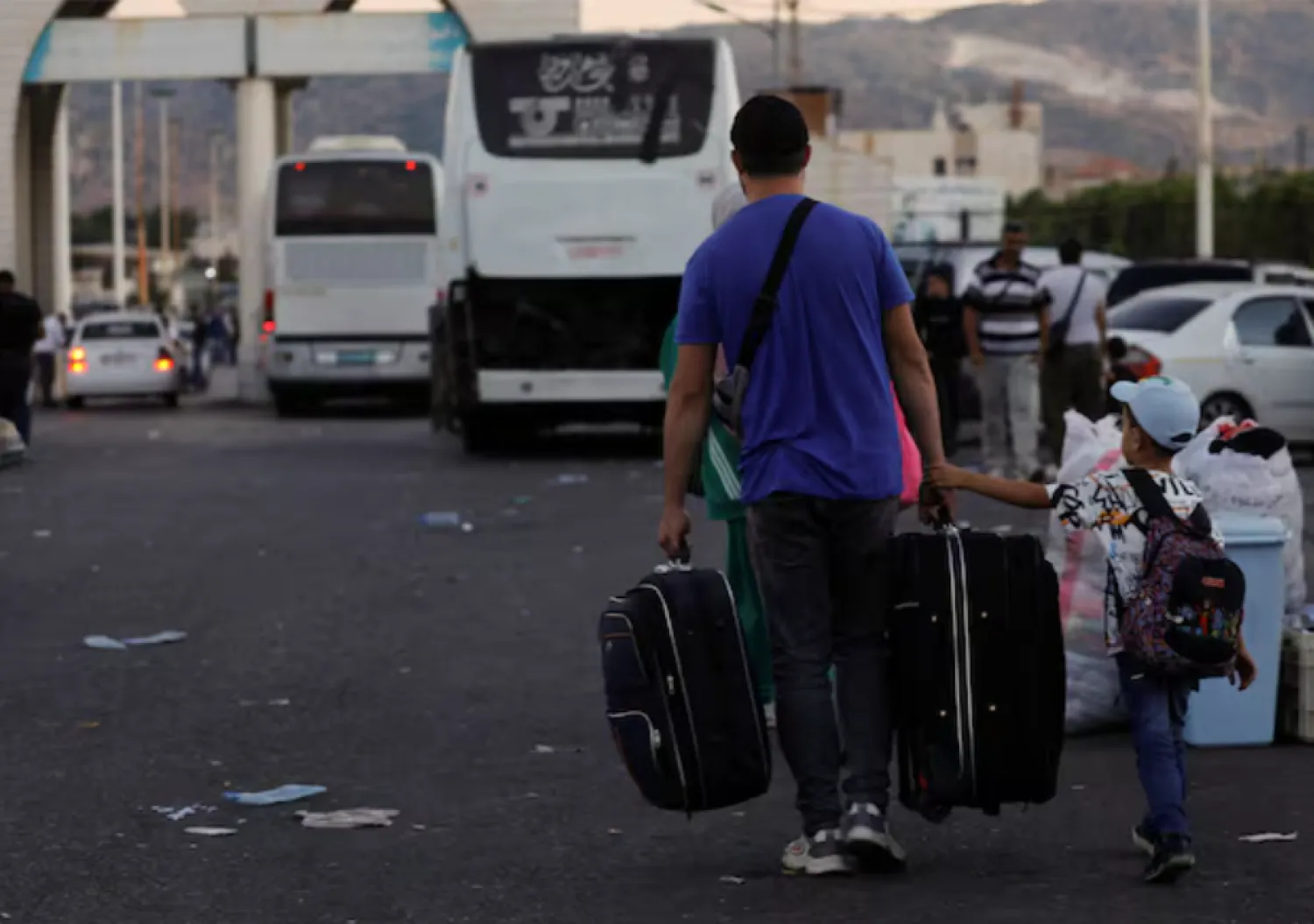Israeli-US operations targeting various Iranian military and security leaders have cut off communication between officials handling the Palestinian file in Iran’s Revolutionary Guard Corps (IRGC) and leaders at multiple levels within Palestinian factions, both inside and outside Gaza.
Asharq Al-Awsat has learned from informed Palestinian factional sources that contact with commanders in the IRGC - whether in the Quds Force or in branches directly linked to Palestinian groups, particularly Hamas and Islamic Jihad - has been severed since the first day of the Israeli-US attacks last Saturday.
According to those sources, it remains unclear whether the IRGC commanders in question have been assassinated or are implementing standard security measures, although some had maintained contact and relayed messages through various means during the 12-day war in June.
“Messages are usually transmitted through encrypted channels, either electronically or by other means. Since the start of this war, no messages have been received,” the sources revealed.
Officials overseeing the Palestinian file in the IRGC are primarily responsible for supporting the factions, financially and militarily. They maintain regular, direct communication with top political and military leaders, and at times with second-tier officials, in efforts to develop plans and scenarios for potential or unfolding events.
The same sources said Iran had appointed a successor to Saeed Izadi, known as Hajj Ramadan, who was responsible for the Palestinian file in the Quds Force and was assassinated by Israel last June.
Two deputies were also assigned to the new commander to oversee the file in case he was killed. However, none of them have communicated with officials from Palestinian factions funded by Tehran during this period.
Deep crisis
Palestinian factions, particularly the Islamic Jihad and smaller groups such as the Popular Resistance Committees, the Mujahideen Brigades and some armed groups active in Gaza, have been facing a severe financial crisis for several months due to a sharp decline in Iranian support for more than seven months, Asharq Al-Awsat previously reported.
Before the Israeli-US strikes, leadership sources within those factions voiced concern over the potential impact, expressing fears of “the collapse of the Iranian regime, which would mean an irreversible halt to support.”
While Hamas relies on multiple funding sources, Islamic Jihad and other factions depend solely on Iranian backing. The downturn has affected salary payments to their members, raising fears of significant damage and even the potential collapse of some groups.
In a related development, sources within the Islamic Jihad told Asharq Al-Awsat that Adham al-Othman, commander of the Al-Quds Brigades, the movement’s armed wing in Lebanon, who was assassinated by Israel on Monday in Beirut’s southern suburbs, had been staying in an apartment belonging to Lebanon’s Hezbollah.
The apartment was considered a “safe location” and was secured by the party. He was killed alongside several individuals, some of whom were Hezbollah security personnel.
It remains unclear whether Israel had precise intelligence on Othman’s presence at the site or targeted it on the basis of its affiliation with Hezbollah, particularly as the Israeli military announced his killing only after a significant delay, hours after the Islamic Jihad had issued a statement mourning him.
Islamic Jihad members had taken part in attacks alongside Hezbollah along the border with Israel during what was known as the “support war”, which was launched by the party in October 2023 and ended with a ceasefire in November 2024. Some of those mourned by the group had moved to Beirut from Syria.









